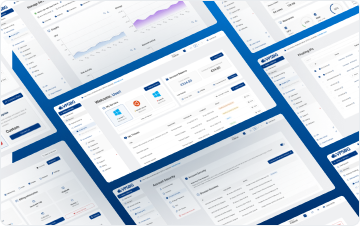Just like CyberPanel, Webmin is also a free, open-source control panel that you can use for your cloud server as an alternative to cPanel. It comes equipped with a variety of different features allowing you to save time and resources while enabling you to automate certain processes when it comes to server management and website or app development.
This is why we offer Webmin as a single-click application template for both our cloud VPS and VDS servers, allowing you to get a server with a fresh Webmin installation in a matter of minutes!
However, managing your Webmin control panel can be difficult for some users, especially for those that don’t have any prior experience when it comes to working with any control panels, which is why in this documentation entry, we are going to be covering some of the more popular questions regarding Webmin!
How to reset your Webmin password
There are a number of ways and files that you can use to change your Webmin password. However, in order to utilize any of them, you are going to need to log into your server using SSH so that you can establish a secure connection first as you are going to need to enter a few commands before you can fully reset your password.
Via the Webmin web interface
In order to change your password from the Webmin interface, you will need to first log into your account. From there you want to select the ‘root’ option from the dashboard menu on the left as shown in the following image:

This will bring up the edit menu for your account. Open up the ‘Password’ dropdown menu which will be set to Unix authentication by default. From there, select the ‘Set to’ option:

You can then set your new password by entering in the field next to the dropdown menu.

IMPORTANT: Your changes will take effect the next time you log into your Webmin installation!
With the changepass.pl script
Another way in which you can change your password is by using the changepass.pl script. Once you have logged into your server by using SSH, you will need to run the following command:
/usr/share/webmin/changepass.pl /etc/webmin/ root newpassword
IMPORTANT: Make sure to change newpassword to your new desired password!
You should now see a message that will state that the password has been changed successfully, allowing you to log into your Webmin control panel with your new password!

How to restart Webmin
Sometimes you might need to restart Webmin in cases where you make any changes to the control panel.
With the systemctl restart webmin command, you can easily restart the Webmin panel. To confirm that everything is up and running afterwards, you can enter the systemctl status webmin in the command-line.

How to update Webmin
It is crucial to keep your Webmin installation up to date not only because of the new features, but also to make sure that existing bugs are fixed and security remains top notch. Here’s how to update your Webmin. Start by opening your Webmin. Then go to the Dashboard section and look for the 'Webmin Configuration'.

Next, find the 'Upgrade Webmin' button from the new menu that will be displayed.

This will bring up a new window with a number of options. You can choose to update Webmin from either a local file or an uploaded file. If you wish to automatically update the software to the newest available version select “Latest version from webmin.com” and click on the 'Upgrade Webmin' button.

This will initiate the installation process. If you already have the latest version, you should see the following text.

Alternatively, you can also update Webmin through the command line by updating the Linux packages through your package manager. On Ubuntu and Debian “apt” is used, and on other Linux distributions such as CentOS, AlmaLinux and RockyLinux it is “yum”:
apt update
apt upgradeAfter that you will also need to restart Webmin:
systemctl restart webmin





